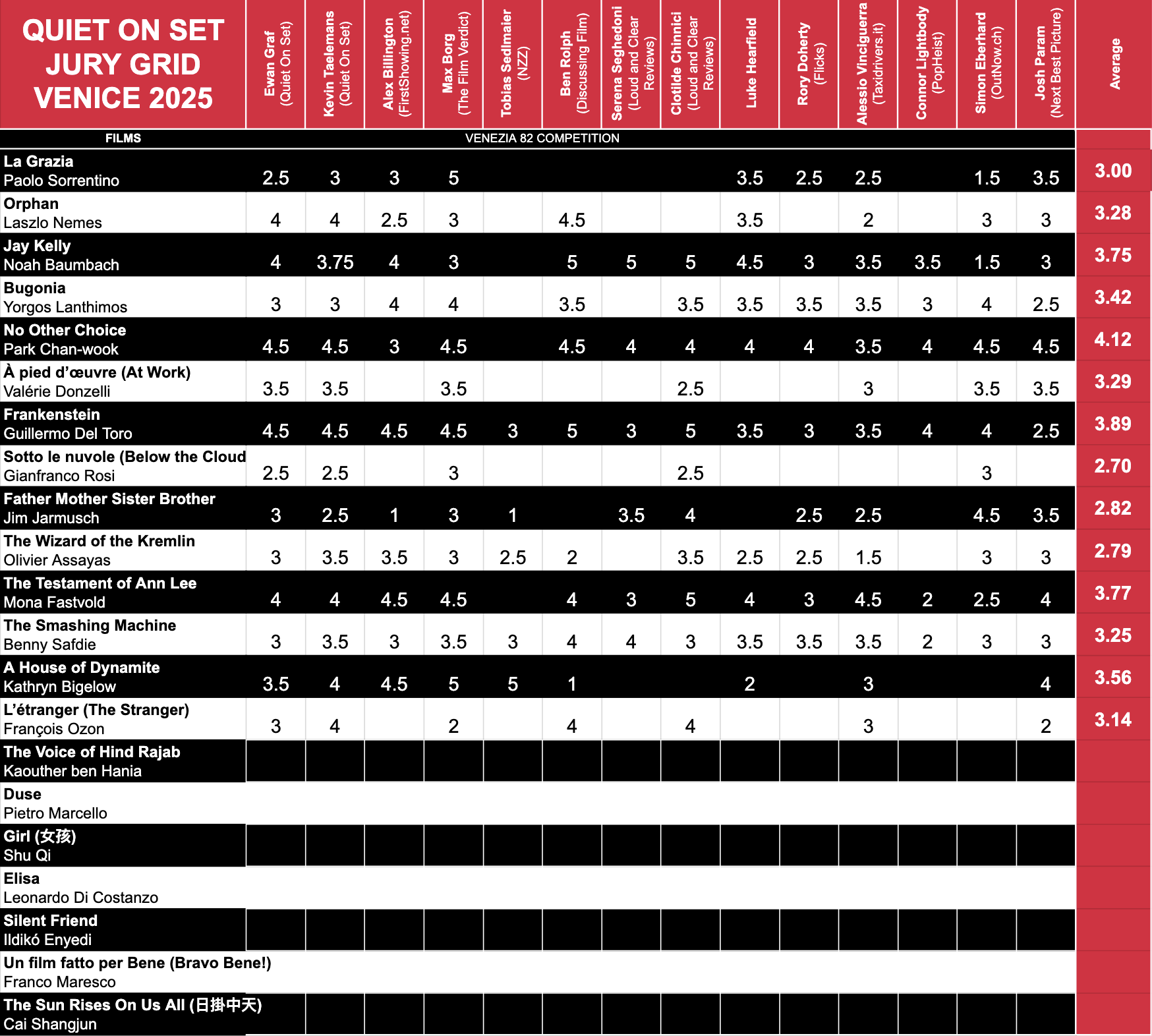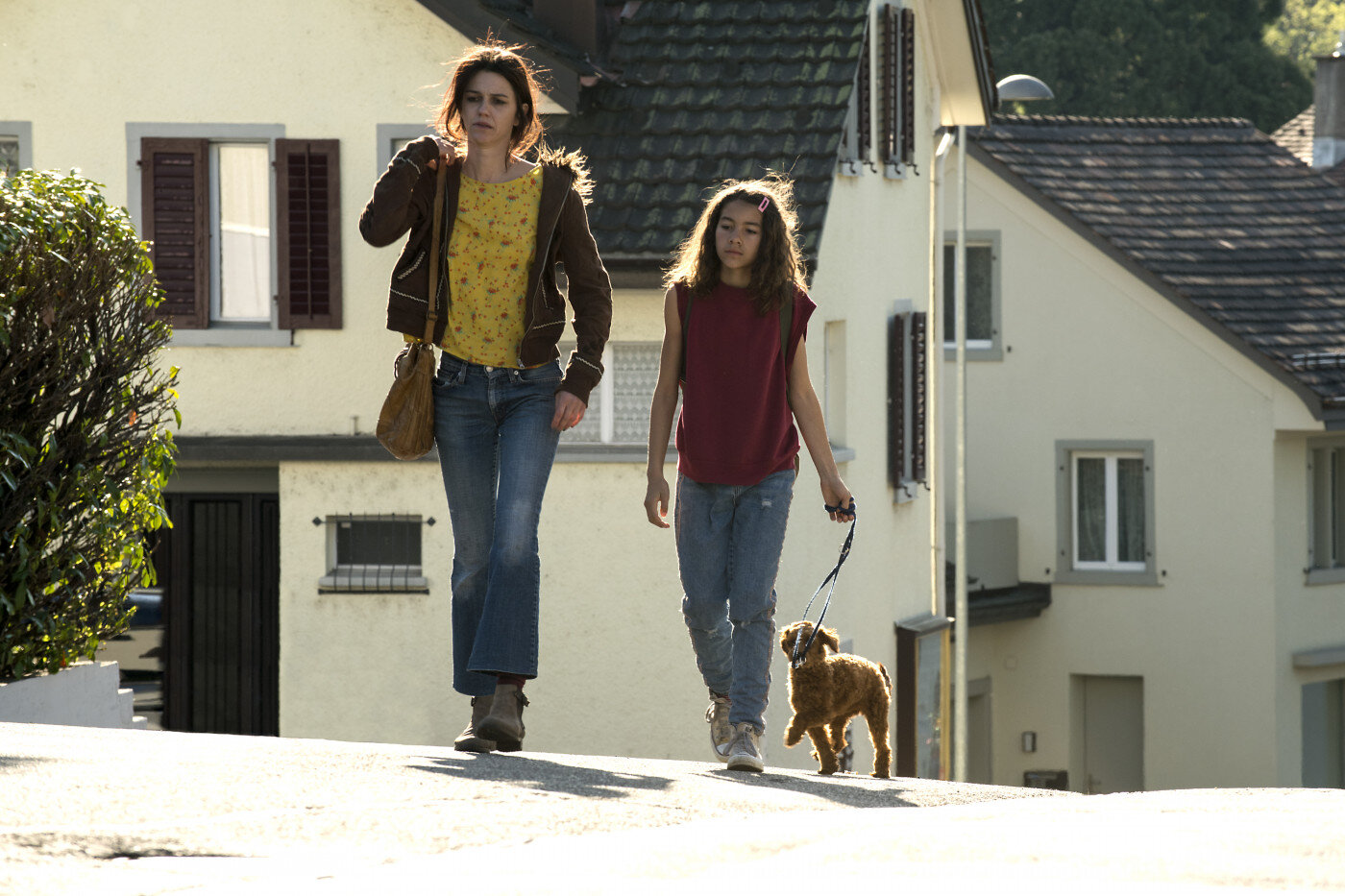Mare lives an ordinary life in the rural part of Croatia. She loves her family, but she also strives for more freedom and self-determination. Her husband works at the local airport, but nevertheless, Mare has never flown anywhere her entire life. Similarly, her family life is not satisfying and it gets quite stressful with three teenage children and a husband that is not the best at communicating. When a young man suddenly enters Mare’s life, he reanimates her joie de vivre and consequently turns her world upside down.
The ‘Zürcher Hochschule der Künste’ graduate Andrea Štaka (Das Fräulein, Hotel Belgrad) writes and directs her fourth feature film and reunites with Marija Škaričić (A Wonderful Night in Split, What is a man without a Moustache?) as the lead. Marija Škaričić won best actress for her performance in Andrea Štaka’s Das Fräulein at the Sarajevo Film Festival.
Mare premiered at the 70th Berlin Film Festival in the Panorama Section. The film was shot in a small town of Dubrovnik in Croatia and a Swiss-Croatian production.
Even though I usually enjoy slow-paced films, I could not help but feel a bit bored with Mare. There is quite a bit of repetition of similar scenes that capture the mundanity of everyday life, but ultimately are rather meaningless to the overall story. This gave me the impression of simply ‘filling up time’ instead of moving the characters or the plot along. The performances from the primary and secondary characters were all fine. I was positively surprised by the actor that played Mare's oldest son, who kept on walking the thin line of almost over-acting without ever actually fully crossing it.
As the first few scenes of the film play out, you might wonder why it looks so old and grainy. Turns out the film was entirely shot on 16mm film on the Arri 416. The aesthetic grew on me and gave it the raw realness Štaka was going for.
I left the cinema rather disappointed for a reason that I cannot fault the movie too much. It is, however, a slight spoiler, so if you wish to go into this without knowing anything more then the premise, skip ahead to the rating now.
There is no real conclusion to the main conflict. All parties are just there - partly aware of what is going on - and then it just ends. I get that the inconclusiveness of an open-end is supposed to reflect real life, but I find it frustrating after seeing plenty of thematically similar scenes that were leading to a more active confrontation.
If you enjoy slow-paced films with down-to-earth realistic characters then Mare just might be for you.
The film will be in Swiss theatres on March 12th.
★★⋆☆☆
Film Date: Director: Andrea Štaka - Writer: Andrea Štaka - Cast: Marija Škaričić Goran Navojec Mateusz Kościukiewicz Mirjana Karanović Ivana Roščić Zdenko Jelčić - 84’ - Croatia/Switzerland - 2020 - Distributor (CH): Frenetic Films
Photos and Video rights: FRENETIC FILMS and Ona Pinkus
-
Ewan
Graf
- May 25, 2023 ASTEROID CITY - Review by Ewan Graf May 25, 2023
- May 25, 2023 FALLEN LEAVES - Review by Ewan Graf May 25, 2023
- May 25, 2023 THE ZONE OF INTEREST - Review by Ewan Graf May 25, 2023
- May 25, 2023 KILLERS OF THE FLOWER MOON - Review by Lachlan Thiele May 25, 2023
- May 24, 2023 CLUB ZERO - Review by Ewan Graf May 24, 2023
- May 24, 2023 FIREBRAND - Review by Lachlan Thiele May 24, 2023
- May 23, 2023 ANATOMY OF A FALL - Review by Lachlan Thiele May 23, 2023
- May 23, 2023 BANEL & ADAMA - Review by Lachlan Thiele May 23, 2023
- May 23, 2023 MAY DECEMBER - Review by Lachlan Thiele May 23, 2023
- May 22, 2023 STRANGE WAY OF LIFE - Review by Lachlan Thiele May 22, 2023
- May 22, 2023 ONLY THE RIVER FLOWS - Review by Lachlan Thiele May 22, 2023
- May 22, 2023 HOW TO HAVE SEX - Review by Lachlan Thiele May 22, 2023
- May 22, 2023 THE ZONE OF INTEREST - Review by Lachlan Thiele May 22, 2023
- May 22, 2023 INDIANA JONES AND THE DIAL OF DESTINY - Review by Lachlan Thiele May 22, 2023
- May 22, 2023 INDIANA JONES AND THE DIAL OF DESTINY - Review by Ewan Graf May 22, 2023
- May 22, 2023 INDIANA JONES AND THE DIAL OF DESTINY - Review by Ewan Graf May 22, 2023
- May 18, 2023 OCCUPIED CITY - Review by Ewan Graf May 18, 2023
- May 18, 2023 MONSTER - Review by Ewan Graf May 18, 2023
- May 18, 2023 LE RETOUR (Homecoming) - Review by Lachlan Thiele May 18, 2023
- May 18, 2023 OCCUPIED CITY - Review by Lachlan Thiele May 18, 2023
- May 18, 2023 MONSTER - Review by Lachlan Thiele May 18, 2023
- Jan 21, 2022 La Guerra Civil (2022) - Sundance Jan 21, 2022
- Dec 30, 2021 Belfast (2021) Dec 30, 2021
- Dec 16, 2021 Spider-Man: No Way Home (2021) Dec 16, 2021
- Dec 11, 2021 The Unforgivable (2021) Dec 11, 2021
- Dec 11, 2021 The Humans (2021) Dec 11, 2021
- Jul 28, 2021 The Green Knight (2021) - Quiet On Set Podcast Review Jul 28, 2021
- Feb 25, 2021 Cherry (2021) - Avenger vs Opioids Feb 25, 2021
- Feb 8, 2021 CODA (2021) - The Big Winner of the Sundance Film Festival 2021 Feb 8, 2021
- Feb 7, 2021 Judas and the Black Messiah (2021) Feb 7, 2021
- Feb 5, 2021 Duel - 52 Years of 52 Weeks Feb 5, 2021
- Jan 13, 2021 The Aristocats - 52 Years in 52 Weeks Jan 13, 2021
- Jan 4, 2021 So I watched every movie in 2020... Jan 4, 2021
- Jul 29, 2020 Unhinged Jul 29, 2020
- Mar 10, 2020 Onward Mar 10, 2020
- Mar 5, 2020 Mare Mar 5, 2020
- Feb 26, 2020 Just Mercy Feb 26, 2020
- Feb 18, 2020 The Peanut Butter Falcon Feb 18, 2020
- Feb 17, 2020 Platzspitzbaby - (Needle Park Baby) Feb 17, 2020
- Feb 7, 2020 Horse Girl Feb 7, 2020
- Feb 6, 2020 Birds of Prey (and the Fantabulous Emancipation of One Harley Quinn) Feb 6, 2020
- Feb 5, 2020 2019 was the best cinematic year of the decade, change my mind Feb 5, 2020
- Feb 5, 2020 Dolitte Does Little For Me Feb 5, 2020
-
Kally
Künnap
- Mar 17, 2020 Dystopian Movies & Series to Binge on Whilst Quarantined Mar 17, 2020
- Feb 25, 2020 Queen & Slim Feb 25, 2020
- Feb 14, 2020 To All the Boys I've Loved Before: P.S. I Still Love You Feb 14, 2020
-
Lachlan
Thiele
- Jan 10, 2022 The Tragedy of Macbeth (2021) Jan 10, 2022
- Oct 17, 2021 Halloween Kills Oct 17, 2021
- Sep 12, 2021 The Green Knight is the best film of 2021 Sep 12, 2021
- Jul 28, 2021 Pig (2021) Jul 28, 2021
- Feb 29, 2020 Sonic The Hedgehog Feb 29, 2020
- Feb 16, 2020 The Gentlemen Feb 16, 2020
-
Michelle
Bernet
- Mar 12, 2020 EMMA. Mar 12, 2020
- Mar 5, 2020 About Endlessness by Roy Andersson Mar 5, 2020
- Feb 18, 2020 Moskau Einfach! (One Way to Moscow) - English + German Review Feb 18, 2020













